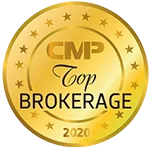As a homeowner in Canada, managing your mortgage effectively can save you thousands of dollars over the long term. Whether you’re looking to reduce monthly payments, access equity, or secure a better interest rate, understanding the difference between refinancing and renewing your mortgage is crucial. While these terms may sound similar, they involve different processes, costs, and potential benefits. This guide explains everything you need to know so you can make informed decisions that suit your financial goals.
What Is Mortgage Renewal in Canada?
Mortgage renewal is a standard part of owning a home in Canada. Most mortgages come with a fixed term, typically ranging from one to five years, although some lenders offer terms up to ten years. At the end of your term, your mortgage doesn’t disappear; instead, it enters a renewal stage.
During renewal, you have the option to:
- Continue with your current lender.
- Negotiate a new interest rate for the next term.
- Adjust the amortization period (the total length of time it takes to pay off your mortgage).
Renewal is often considered a low-risk process because you are essentially keeping your mortgage in place while potentially renegotiating better terms. In most cases, your lender will contact you a few months before your term ends to discuss renewal options. This is the perfect opportunity to review your financial situation and compare mortgage rates in the market.
Key Features of Mortgage Renewal
- Minimal Paperwork: Since you already have a mortgage with your lender, renewing is generally straightforward and involves limited documentation.
- Lower Costs: Renewal usually has no significant fees, unlike refinancing, which may involve legal, appraisal, or administrative costs.
- Rate Negotiation: You can often negotiate a lower interest rate at renewal, especially if your credit score is strong or interest rates have dropped.
- Flexibility: Renewal allows you to adjust your amortization schedule, payment frequency, or even switch from a variable to a fixed rate mortgage.
Renewal is an ideal option if your mortgage payments are manageable, and your primary goal is to continue your current loan under slightly better terms.
Refinance vs Renewal: Understanding the Differences
To make the right decision, it’s important to understand how refinancing differs from renewing:
| Feature | Renewal | Refinance |
| Definition | Extending your existing mortgage with the same lender at the end of the term | Replacing your current mortgage with a new one, potentially with a different lender |
| Cost | Minimal or no fees | May involve legal fees, appraisal costs, and potential penalties |
| Interest Rate | Opportunity to negotiate but often limited | Can secure lower rates, especially if switching lenders |
| Access to Equity | Not available | Can access home equity for cash-out refinancing |
| Purpose | Continuation of existing mortgage | Financial restructuring, debt consolidation, or cash access |
| Process Complexity | Simple | More involved, similar to obtaining a new mortgage |
In simple terms, renewal is about continuity with minor adjustments, while refinancing is about changing the mortgage to achieve specific financial goals.
What Is Mortgage Refinancing in Canada?
Refinancing, on the other hand, is a more comprehensive process. It involves replacing your existing mortgage with a new one, which may be with the same lender or a different one. The primary goal of refinancing is to access better terms, consolidate debt, or tap into your home equity.
When you refinance, you pay off your current mortgage with a new one. This can result in:
- Lower interest rates reduce your monthly payments.
- Cash-out refinancing, where you access the equity in your home to fund renovations, investments, or other significant expenses.
- Debt consolidation is achieved by combining high-interest debts into a single mortgage payment.
While refinancing can offer significant financial benefits, it also comes with costs, such as legal fees, appraisal fees, and potential penalties for breaking your existing mortgage contract. Therefore, it’s essential to weigh the pros and cons before proceeding.
Key Features of Mortgage Refinancing
- Potential Savings: By securing a lower interest rate or extending your amortization period, you can reduce monthly payments.
- Access to Home Equity: Refinancing can unlock cash tied up in your property, providing flexibility for home improvements or other financial goals.
- Flexibility to Change Lenders: Refinancing allows you to switch to a different lender offering more competitive rates or better customer service.
- Debt Consolidation: High-interest debts like credit cards or personal loans can be consolidated under a lower-interest mortgage.
Refinancing is typically suited for homeowners who are looking for significant financial changes rather than minor adjustments. If your main objective is to optimize your mortgage strategy, refinancing may be the better option.
When Should You Consider Mortgage Renewal?
Mortgage renewal is typically the preferred choice when:
- You are satisfied with your current interest rate or payment plan.
- Your credit situation has not changed significantly.
- You’re looking for a low-cost, low-risk option that doesn’t include legal or appraisal fees.
- You prefer staying with your current lender for convenience and relationship benefits.
It’s also a good time to review your financial goals. For example, if interest rates have dropped since your last term, negotiating a lower rate during renewal could save you money without the need for refinancing.
When Should You Consider Refinancing?
Refinancing makes sense in situations where:
- Interest rates have dropped significantly since your original mortgage.
- You want to access equity for home renovations or other significant expenses.
- You need to consolidate high-interest debts into a single, lower-interest payment.
- Your financial situation has changed, and you want to adjust your amortization period to reduce monthly payments.
- You are seeking better terms or improved customer service with a new lender.
Refinancing can be especially advantageous for homeowners who have built substantial equity in their home or whose credit scores have improved, making them eligible for lower rates.
Costs Associated with Refinancing vs Renewal
While both renewal and refinancing offer opportunities to save money, the costs involved differ:
Mortgage Renewal Costs:
- Generally, no legal or appraisal fees.
- Possible small administrative fees if changing the mortgage term or conditions.
- Minimal paperwork and low overall cost.
Mortgage Refinancing Costs:
- Legal fees for closing the new mortgage (typically $500–$1,500).
- Appraisal fees to determine current market value (usually $300–$500).
- Prepayment penalties if you break your existing mortgage contract.
- Possible mortgage default insurance if accessing a large amount of equity.
Understanding these costs is critical because refinancing may not be worthwhile if the savings do not outweigh the expenses.
Factors to Consider Before Making a Decision
Before deciding whether to renew or refinance, Canadian homeowners should consider:
- Current Interest Rates: Compare your existing mortgage rate with current market rates to see if a lower rate is available.
- Equity in Your Home: Higher equity can make refinancing more appealing, especially for cash-out options.
- Mortgage Terms: Consider whether you want a fixed or variable rate and the length of the amortization period.
- Financial Goals: Are you seeking to reduce monthly payments, consolidate debt, or access funds for a significant purchase?
- Penalties for Breaking Your Mortgage: Check your contract for any prepayment penalties or fees.
- Credit Score and Financial Health: A higher credit score can help secure lower interest rates during refinancing.
Taking time to review these factors will help you make a more informed choice that aligns with your long-term financial objectives.
Tips for a Successful Mortgage Renewal or Refinance
- Start Early: Begin evaluating your options at least 3–6 months before your mortgage term ends.
- Shop Around: Even if renewing, it’s wise to compare rates from multiple lenders to ensure you’re getting the best deal.
- Consult a Mortgage Broker: A licensed mortgage broker can provide valuable guidance and help you navigate both renewal and refinancing options.
- Review Your Finances: Make sure your budget, debt levels, and credit score support your desired mortgage strategy.
- Understand All Costs: Factor in fees, penalties, and administrative costs to calculate your net savings accurately.
By following these steps, you can avoid surprises and make a decision that strengthens your financial position.
Conclusion
For Canadian homeowners, understanding the difference between mortgage renewal and refinancing is essential. Renewal offers a simple, low-cost way to continue your existing mortgage, while refinancing allows for more substantial changes, such as lowering interest rates, accessing equity, or consolidating debt. Choosing between the two depends on your financial goals, current mortgage rates, and overall financial situation. By carefully evaluating your options, comparing lenders, and considering associated costs, you can make a decision that maximizes your savings and aligns with your long-term plans. Whether you opt to renew or refinance, proactive planning and informed decision-making are key to successfully managing your mortgage and securing a financially healthy future.




